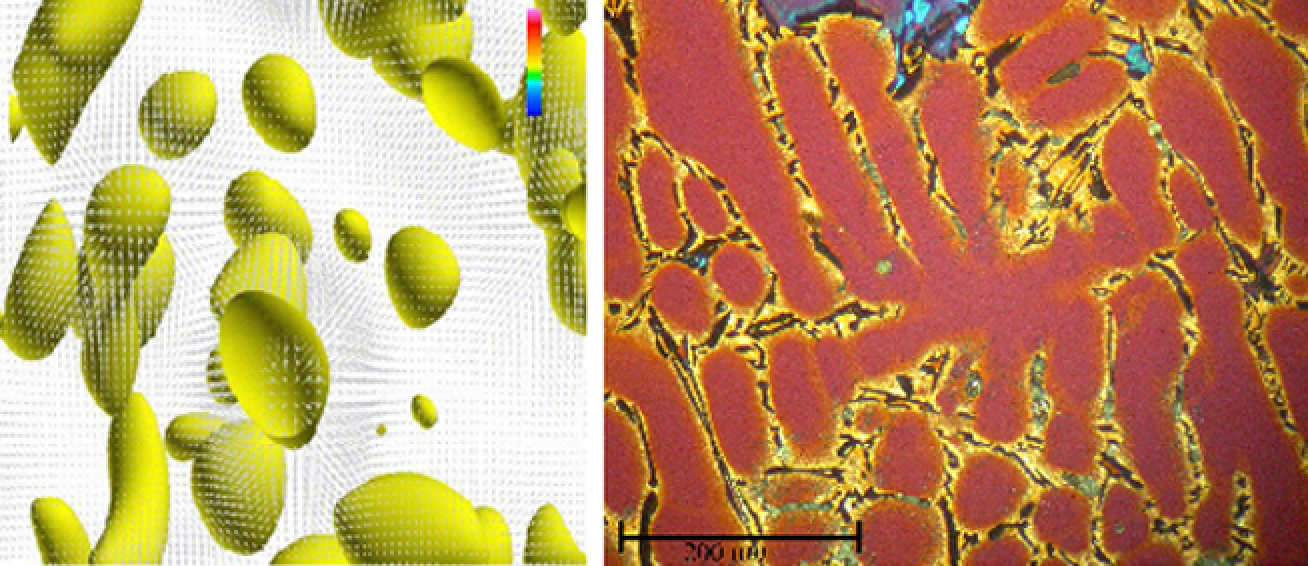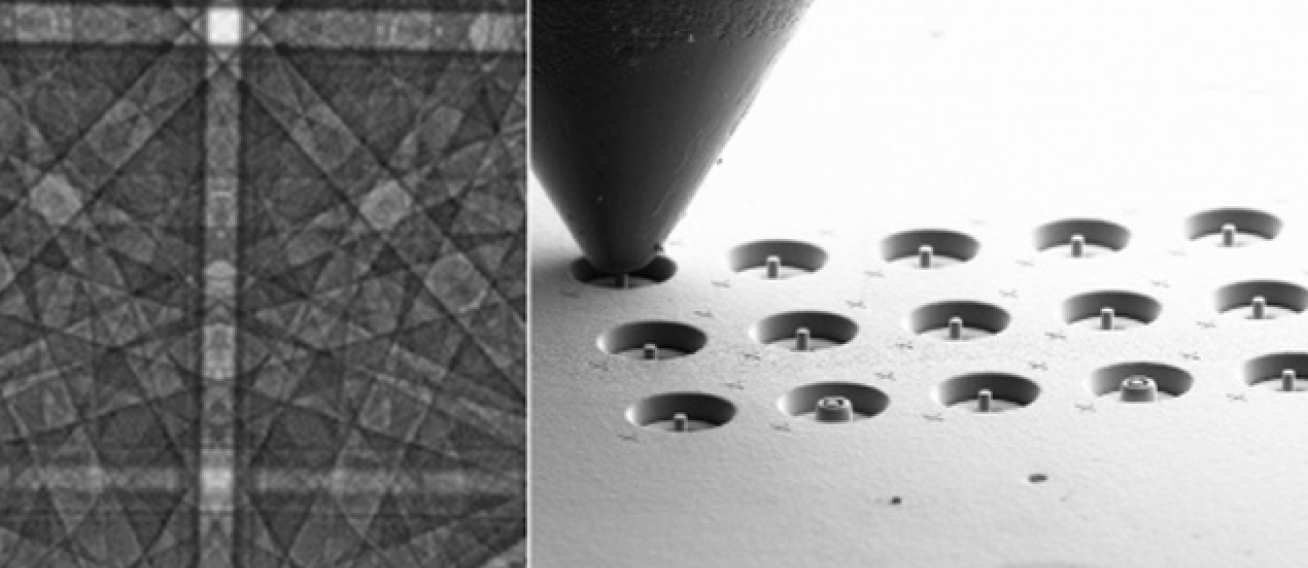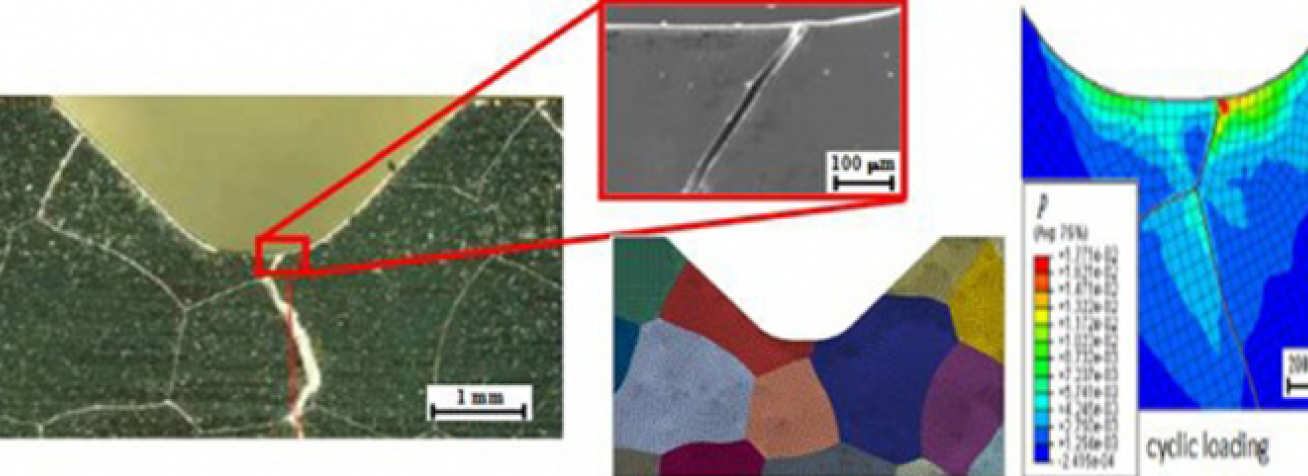Metallic alloys are to be found in a vast array of engineering artefacts and are mostly structural in nature and therefore often required to carry extremes of mechanical and thermal loading. They are exploited for their excellent stiffness, strength and endurance in applications which include power generation, transport, built environment, and space exploration. The Imperial College Engineering Alloys Group is actively engaged in experimental, theoretical and computational aspects of alloy research across the range of temporal and spatial scales. We collaborate closely with research groups within and outside of Imperial, and with a very large number of industries and government bodies.
Our research explores the behaviour, processing and performance of materials for industries such as aerospace, nuclear power generation, large scale industrial processes, and microelectronics. This work addresses challenges such as: reduction in CO2 generation, through the development of lighter and higher performance alloys; improvements in safety and lifetime prediction through physical understanding of deformation processes; and significant improvements in the life cycle of alloys, reducing energy consumption through reuse and recycling.
We have subpages dedicated to current research projects.
i) Microstructure Development
Many of the group study microstructure formation during phase transformations including solidification, precipitation reactions and shear transformations. Another focus is on microstructure evolution during interfacial reactions, particularly in microelectronic soldering and the high temperature oxidation of aerospace alloys.
Much of the experimental work focusses on high resolution electron microscopy or developing in-situ synchrotron methods to study the dynamics of phase transformations. Modelling approaches being developed include phase field, smooth particle hydrodynamics (SPH) and Lattice Boltzmann approaches.
These fundamental studies are being applied to alloy design in the fields of aeroengine materials and Pb-free solders, and to processing developments such as new heat treatments, thermo-mechanical processing strategies, electropulsing and magnetic field approaches.

ii) Micromechanics
We are actively engaged in-situ micromechanical testing with FIB, SEM / HR-EBSD, TEM and X-ray, for single and polycrystal behaviour; and in crystal plasticity, discrete dislocation and continuum modelling in order to characterise alloys and understand their deformation and failure mechanisms.
These testing methodologies are actively being applied to provide new insight into the fundamentals of plasticity and failure, and to address and design new thermo-mechanical processing strategies.

